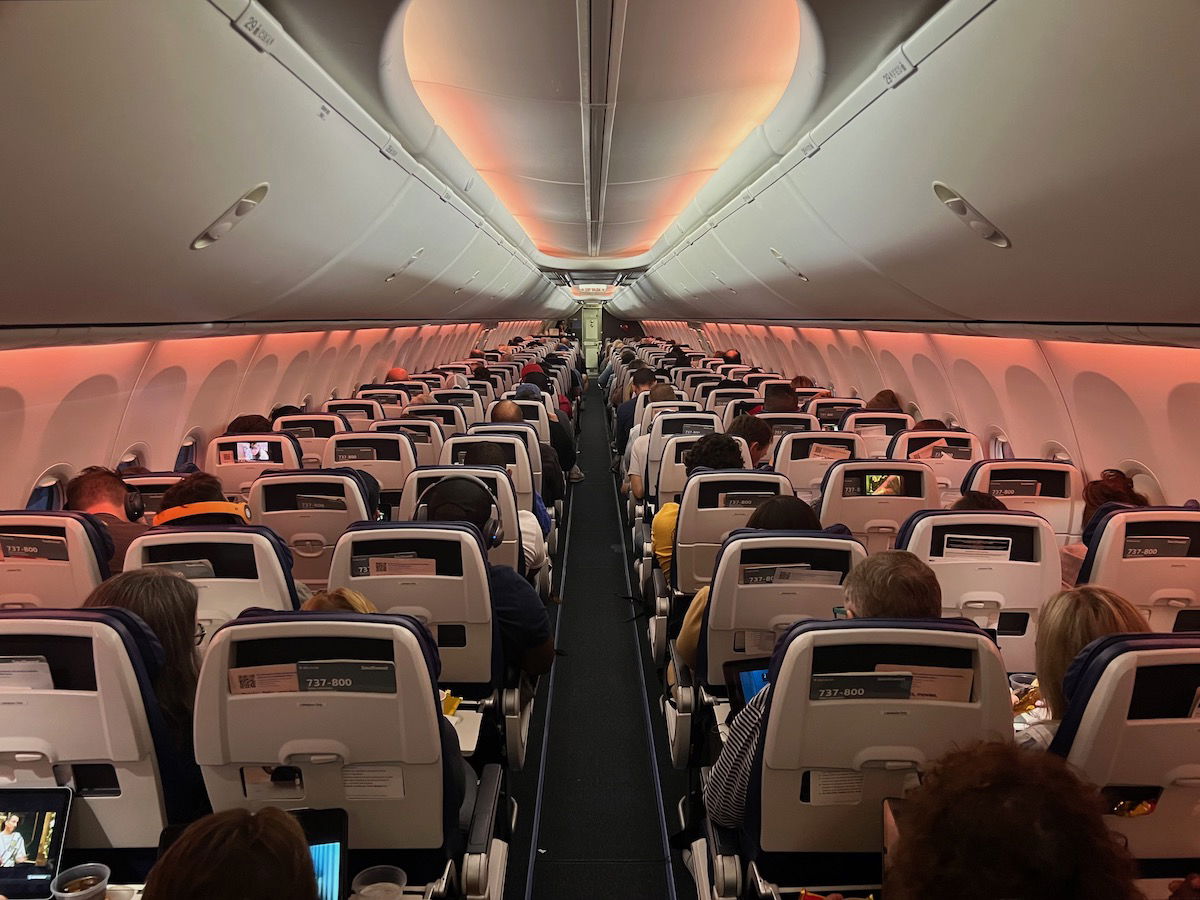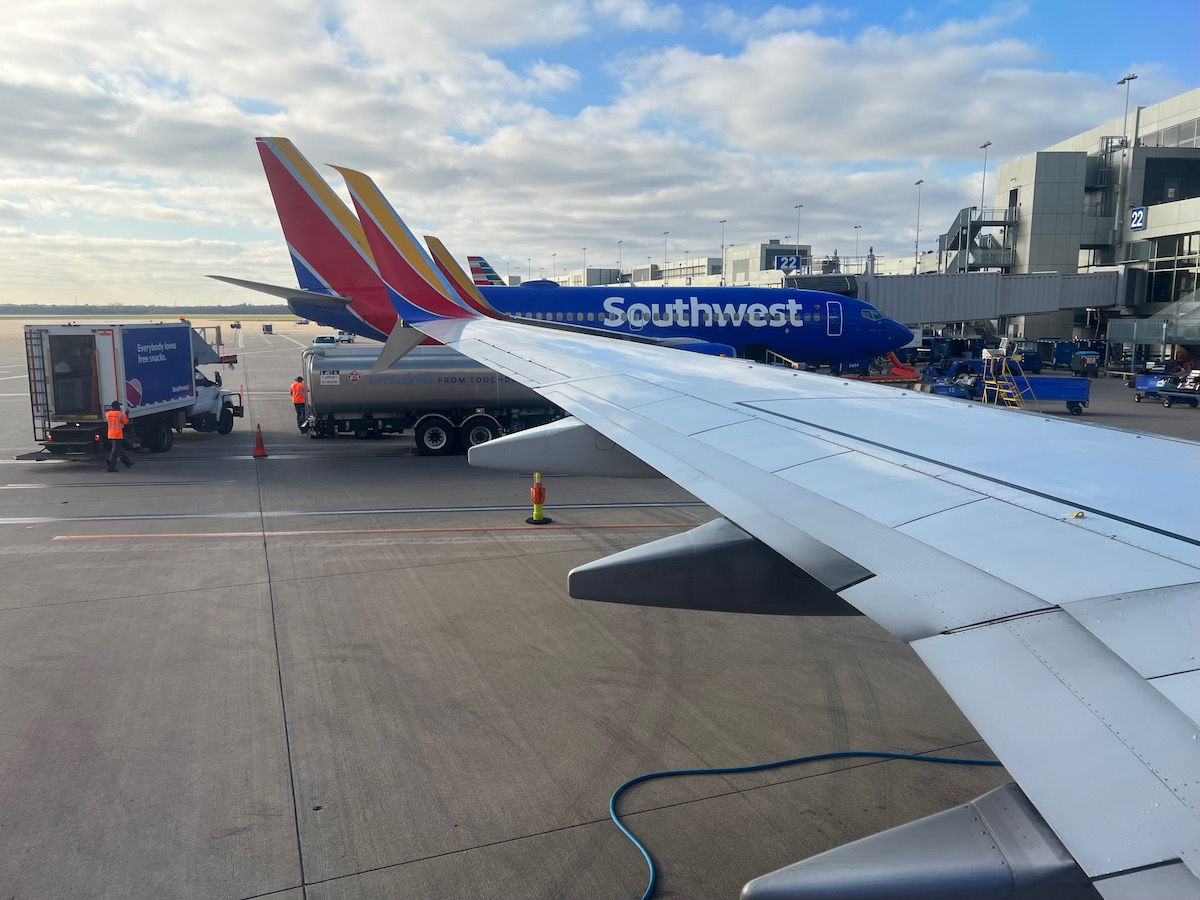A couple of weeks ago, we saw JetBlue fined for operating chronically delayed flights, representing a first-ever fine for this reason from the Department of Transportation (DOT). Well, JetBlue isn’t the only airline being targeted, as Southwest is now being sued for a similar reason.
In this post:
DOT sues Southwest for unrealistic flight scheduling
The DOT has this week announced a lawsuit against Southwest, accusing the airline of illegally operating multiple chronically delayed flights and disrupting passengers’ travels. The DOT’s lawsuit against Southwest seeks maximum civil penalties. As US Transportation Secretary Pete Buttigieg describes this:
“As part of our commitment to supporting passenger rights and fairness in the market for airline travel, we are suing Southwest Airlines for disrupting passengers’ travel with unlawful chronic flight delays. Airlines have a legal obligation to ensure that their flight schedules provide travelers with realistic departure and arrival times. Today’s action sends a message to all airlines that the Department is prepared to go to court in order to enforce passenger protections.”
So, what regulations did Southwest violate? DOT rules prohibit airlines from promising unrealistic schedules that do not reflect actual flight departure and arrival times. The DOT claims that unrealistic scheduling is an unfair, deceptive, and anticompetitive practice, that disrupts passengers’ travel plans, denies them reliable scheduling information, and allows airlines to unfairly capture business from competitors by misleading consumers.
Per the DOT’s definition, chronically delaying a flight for more than four consecutive months is one form of unrealistic scheduling. Under DOT rules, a flight is chronically delayed if it is flown at least 10 times per month, and arrives more than 30 minutes late more than 50 percent of the time. Cancellations are included as delays within this calculation.
The DOT’s investigation uncovered that Southwest operated two chronically delayed flights between April and August of 2022, resulting in 180 flight disruptions. Specifically, this was on the carrier’s routes between Chicago Midway (MDW) and Oakland (OAK), and between Baltimore (BWI) and Cleveland (CLE).
For these two routes, the DOT found that Southwest was responsible for over 90% of disruptions. But regardless of the cause of disruptions, DOT rules provide airlines adequate time to fix their schedules after a flight becomes chronically delayed, prior to being fined. Southwest failed to do so, however.

Southwest defends itself against DOT accusations
In response to the DOT lawsuit, Southwest has issued the following statement:
“Since DOT issued its Chronically Delayed Flight (CDF) policy in 2009, Southwest has operated more than 20 million flights with no other CDF violations. Any claim that these two flights represent an unrealistic schedule is simply not credible when compared with our performance over the past 15 years. In 2024, Southwest led the industry by completing more than 99% of its flights without cancellation.”
As you can see, Southwest isn’t actually disagreeing with the DOT’s accusations. Instead, the airline is simply claiming that it otherwise operates flights very reliably, and therefore should be given some leeway with the delays from 2022. The DOT clearly defines what constitutes chronically delayed flights, and Southwest violated those rules. It’s a bit like being pulled over speeding, and telling the police officer that you don’t usually speed.
When you look at the flights that are mentioned, it does look pretty bad for Southwest. For example, for Southwest flight 1029 from Chicago Midway to Oakland:
- In April 2022, the flight arrived late on 19 of 25 trips, with an average delay of over an hour
- In May 2022, the flight arrived late 16 of 27 trips, with an average delay of 80 minutes
- Over the next three months, the flight was always late more than half the time, and the average delay always exceeded an hour
Given that only a very small percentage of the delays were due to factors outside of Southwest’s control, it seems pretty clear that the airline was in fact scheduling flights in an unrealistic way.
Now, we can argue to what extent an airline should be excused when it otherwise has solid on-time performance, but the DOT seems to be following its published guidelines here. In the case of JetBlue, the fine probably made more sense big picture, since JetBlue has really struggled with on-time performance (though it’s an area where the carrier is improving).

Bottom line
The Department of Transportation is suing Southwest for operating chronically delayed flights. Specifically, the airline operated two chronically delayed routes in the summer of 2022, where flights were consistently delayed over a period of several months. Southwest isn’t the first airline to be punished over its unrealistic scheduling practices, as we’ve seen the same at JetBlue.
What do you make of the DOT suing Southwest over chronic flight delays?





Southwest is perpetually delayed. It seems obvious by now that they never intend on actually departing at their scheduled times. It’s a chronic issue. Worst part for me is they refuse to update it in real time and only tell you after you finally boarded. Very shady business practices since around 2022. They aren’t the SW of the 90s and 2000s to 2010s.
Legacy carriers have a delayed/canceled rate of 30 percent. Regulators are going after those on the naughty list.
false... the DOT reports on-time percentages for domestic flights in its Air Travel Consumer Report.
For the first 9 months of 2024, as recent as the DOT has released, HA was highest at 82.7 and DL was also in the 80s at 80.6. All other carriers were in the 70s.
WN's cumulative on-time through Sept was 76.8 for 4th place behind UA.
as ben noted, it is true that WN is operating pretty...
false... the DOT reports on-time percentages for domestic flights in its Air Travel Consumer Report.
For the first 9 months of 2024, as recent as the DOT has released, HA was highest at 82.7 and DL was also in the 80s at 80.6. All other carriers were in the 70s.
WN's cumulative on-time through Sept was 76.8 for 4th place behind UA.
as ben noted, it is true that WN is operating pretty reliably across their system but that WN also violated the DOT's guidelines for 2 flights.
The question is whether the DOT has the ability to enforce their guidance as law for which carriers can be fined and I strongly bet that question will be answered by the next administration - not just about these on-time cases but in general regarding the current administration's interpretation and enforcement of other consumer regulations as they see them but which are not codified in US law.